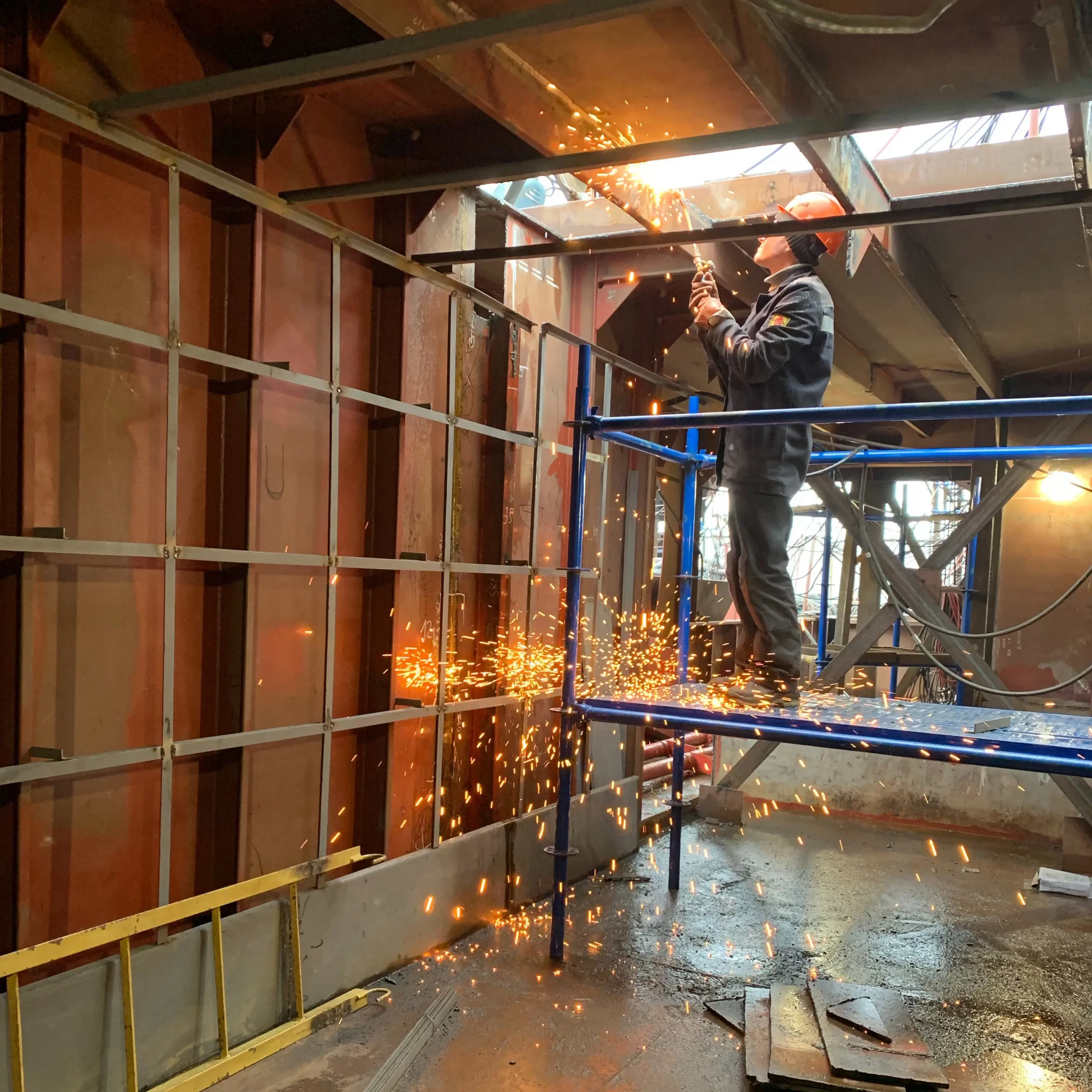
Contractors and Subcontractors: It’s Time for You to Get Paid
At Cornerstone Law Firm, we regularly help general contractors and subcontractors get paid. Were you unfairly thrown off the job before it was finished? Did you complete the work without receiving payment? You’ve come to the right place.
Contractors and subcontractors in Pennsylvania have a variety of legal protection available to them which is summarized below.
- Contractor and Subcontractor Payment Act (CASPA)
- Mechanics’ Lien Law
- Breach of Contract
- Quantum Meruit / Unjust Enrichment
Also, contractors and subcontractors who perform work for residential properties need to ensure their contracts comply with the Home Improvement Consumer Protection Act.
CASPA
Getting Your Opponent to Pay for Your Lawyers’ Fees and for Penalty Interest
Many contractors and subcontractors think it’s cost prohibitive to hire a lawyer to recover what is rightfully owed to them. Pennsylvania has adopted the Contractor and Subcontractor Payment Act (CASPA). Under CASPA, if you prevail on a suit, then your opponent has to pay your reasonable attorneys’ fees. CASPA also gives you penalty interest, measured as 1% per month for the amount wrongfully withheld.
Is CASPA Available for All Building and Construction Cases?
CASPA applies to most, but not all, building and construction cases. CASPA applies regardless of whether your claim is before a State or federal court or before an arbitrator.
CASPA applies to construction contracts (written or oral) to perform any work on real property in Pennsylvania. That includes everything from building to repairing or improving or landscaping.
CASPA applies even if your contract is governed by the law of another State, so long as the real property is located in Pennsylvania.
Residential property is excluded from CASPA if, and only if, the work involves six residential units or less which are under construction simultaneously. CASPA also does not apply to services by professional architects.
Defeating Your Opponent’s Withholding Defenses
CASPA has some really serious teeth if your opponent wants to withhold payment from you.
If an owner or general contractor wants to withhold payment because of a deficiency item in your work or if there is claim whether you breached the contract, then CASPA mandates that you receive written notice within 14 days after you submitted your invoice (or based on the owner’s payment schedule). Or else the deficiency is waived.
Similarly, if an owner or general contractor wants to claim your invoice doesn’t have sufficient detail or that you invoiced work not yet performed, then CASPA requires that you receive written notice of the deficiency in the invoice within 10 days after it was received. Or else the deficiency is waived.
Getting the Retainage You Earned
CASPA is really mean if the owner or general contractor accepts your work but fails to give you the retainage you earned.
If your work is accepted, the retainage must be paid over within 30 days by the owner or general contractor. Subcontractors must pay over to their subs within 14 days after retainage is received.
If retainage is not paid over within that time, then you get 1% late interest per month. That’s in addition to the 1% penalty interest per month.
Defeating the Paid-When-Paid Defense
General contractors often hide behind a Paid-When-Paid Clause in the contract. CASPA allows that to be enforced under limited circumstances, which generally involve disclosing to you the owner’s payment schedule before signing the subcontract. Many general contractors fail to do that, which renders the Paid-When-Paid Clause unenforceable.
Suspending Your Performance without Breaching the Contract
Many contractors and subcontractors want to suspend their performance until they are paid. But they are pressured by their opponent that any suspension will be treated as a breach.
CASPA protects you, first, by making clear that you have a non-waivable right to suspend your performance due to nonpayment. Your contract with your opponent cannot change that.
CASPA requires you to give written notice by mail or e-mail of the nonpayment and then for you to wait at least 30 days after the end of the billing cycle (e.g., monthly unless your contract says otherwise). If you’re not paid within that time, then you must wait at least 30 days from the date of your written notice of nonpayment before giving, by certified, U.S. mail, a Notice of Intent to Suspend Performance in 10 Days. If you’re not paid within those 10 days, then you can suspend your performance, without breaching the contract, until you are paid.
Complying with those requirements can be tricky. Cornerstone Law Firm regularly consults with general contractors and subcontractors to ensure the notices are properly made.


The Mechanics’ Lien Law
The Mechanics’ Lien Law Protects You for Unpaid Labor or Materials
The Mechanics’ Lien Law gives protections if you provided labor or materials and did not receive payment. By filing a claim, that creates a lien on the real property. This puts pressure on the owner to pay the lien off. You then have to file a civil complaint to reduce the claim to judgment, which authorizes you to sell the entire property to pay off what is owed to you.
The Mechanics’ Lien Law does not apply if you are thrown off the job, but otherwise paid for everything you did up to that point. In those instances, you must sue for breach of contract or for quantum meruit or unjust enrichment, rather than under the Mechanics’ Lien Law.
The Mechanics’ Lien Law applies whether the project is commercial or residential real property. There is a limited exclusion for a single, residential building if the owner pays the general contractor in full and the residential building meets certain size restrictions.
The Mechanics’ Lien Law is not always available when performing work for government entities.
The Mechanics’ Lien Law Requires Prompt Action
You must file a claim with the Court of Common Pleas within six months after you completed the work. Subcontractors must also give 30 days’ notice to the owner before filing the claim.
The courts strictly enforce the procedural requirements, and many contractors and subcontractors fail to get paid as a result. Cornerstone Law Firm regularly assists to ensure that the procedures are properly followed.
Once a claim is filed, you have two years to file a civil complaint and five years to obtain a judgment.
The Mechanics’ Lien Law Requires Subcontractors to Have Good Records
The trouble that a lot of subcontractors have with the Mechanic’s Lien Law is maintaining good records. Because the subcontractor did not contract directly with the owner, the Law requires the subcontractor’s invoicing to itemize what was “labor” and what were “materials.” The notice to the owner, and then the claim itself, must include an itemized statement of labor and materials.
Breach of Contract
The civil action for breach of contract remains the most frequent way to obtain payment. The common law does not permit recovery of attorneys’ fees unless (1) your contract authorizes it or (2) CASPA applies, as previously mentioned. CASPA complements the civil action. The civil action and the Mechanics’ Lien Law proceeding can be sought at the same time.
Enforcing the Civil Judgment
Once you obtain a civil judgment, it automatically becomes a lien on any real property in Pennsylvania owned by the judgment-debtor. For smaller claims, you can sell your civil judgment to a debt collector.
The attorneys at Cornerstone Law Firm can keep you informed of your rights and work on your behalf to ensure they are upheld. Contact us for a consultation about your case.
The Home Improvement Consumer Protection Act
Pennsylvania enacted the Home Improvement Consumer Protection Act (HICPA). It is a really nasty statute if contractors are caught unawares on residential properties. Cornerstone Law Firm has prosecuted HICPA and defended contractors against HICPA.
Cornerstone Law Firm regularly consults with contractors to ensure they are using a standard contract that is HICPA-compliant. HICPA requires contracts to be in writing, to specify an approximate start date and completion date, to contain the contractor’s registration number with the Pennsylvania Government, to include a toll-free number for the Pennsylvania Attorney General’s Bureau of Consumer Protection, to give the name, address, and telephone number for the contractor (no Post Office boxes), and to show the date when each party signed the contract.
HICPA requires contracts to give the owner a right to rescind the contract within three business days after the owner signed. The contract must also disclose all subcontractors for the project. HICPA also has requirements for:
- insurance coverage
- down payments
- advancing of expenses
- inclusion of the total price or
- a time and materials provision
HICPA prohibits contracts from recovering attorneys’ fees, waiving the right to jury trial, or holding harmless the contractor.
If a contract fails to comply with HICPA, it becomes invalid and the owner may recover attorneys’ fees and treble damages (damages multiplied by three) if having to defend a lawsuit for breach of contract.
Don’t mess with HICPA. Consult with the attorneys at Cornerstone Law Firm to determine if your contracts and business practices are HICPA-compliant.
Make Sure All Owners Sign for Residential Property Contracts
For residential properties, collecting the judgment is difficult if only one owner signed the contract rather than all owners. If the owners are spouses, then contractors must ensure that both spouses sign the contract.
Quantum Meruit or Unjust Enrichment
It sometimes happens that you performed work with an expectation of getting paid but, for whatever reason, the owner or the general contractor did not form an agreement before you began work. This frequently happens when a change order is asked for, and you performed before it was agreed to.
The common law of quantum meruit, or unjust enrichment, may allow you to recover the fair market value of your work. Quantum meruit is also available if your contract failed to comply with HICPA and becomes invalid as a result.

Don’t Let Others Push You Around; Know Your Rights!
Do not let your opponent push you around. The more you know your rights, including when contract provisions are unenforceable under Pennsylvania law, the better bargaining power you have.
Very often, building and construction cases settle out-of-court. This is often the result when your opponent realizes it will cost them more to litigate with you than to pay you. Cornerstone Law Firm has produced many favorable results for clients. It’s time for you to get paid. Call us for a consultation.
